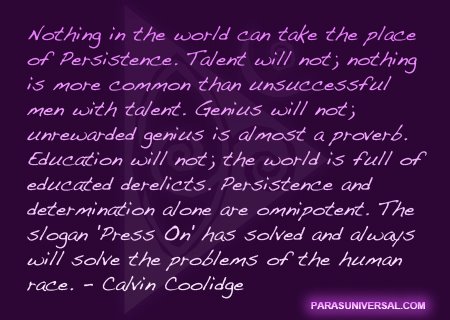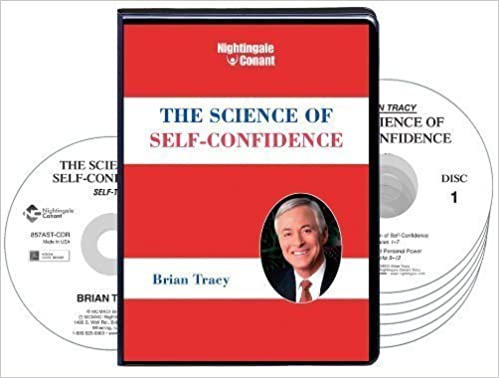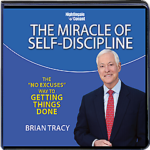– The more you live in tune with your values the more self-confidence you will have. Doing the right thing and being true to yourself makes a difference. Think about your values, things you can never violate. Think about the company you keep, the things you would do if you were to be in tune with these values. Once you know have listed your values, go through them and ask yourself which is the one you would keep if you had to throw all the rest away? This is your foremost value. Follow this exercise until you know which one is second, third, fourth, etc.
Amazon #ads

Mental Laws
– Law of Attraction: Like attracts like. Thought is creative. You are what you think, and you attract what you think.
– Law of Correspondence: Your outer world will be a reflection of what you are thinking.
– The Law of Cause and Effect: What goes around comes around. You sow what you reap. Trace the effect and repeat what you want.
– The Law of Becoming: You are what you eat. You are what you feed your mind.
– The Law of Concentration: The more you dwell upon it, the more it becomes part of your ongoing evolution.
– The Law of Substitution: Your mind can only hold one thing at a time. Positive or negative. And will be taken in by your subconscious mind.
– The Law of Emotion: Every decision you make is based on emotion, negative or positive. The more powerful your emotion, the more rapid the change. Use the 4 Cs to develop this.
The 4 Cs
– Clarity: Know exactly what you want to be and accomplish.
– Conviction: Knowing you can do anything that you put your mind to.
– Commitment: Do what it takes to make it.
– Consistency: Strength of character to say and do certain things the same way every single day until you get the result.
Goal Setting
– Write your goals down, this is important.
– You will get excited by writing it down and committing it to paper.
– Describe your ideal lifestyle.
– Write all your problems and write the solutions to them.
– Write about finance, family, personal, self-improvement, spiritual, health, social and community goals. Put them by priority and select the one that you will focus on most.
– The major goal has to be measurable and chucked down to smaller parts with a deadline.
– Create rewards for each goal achieved.
– Keep the goals confidential.
Self-esteem is your reputation with yourself. Click here to learn about the 6 Pillars of Self-esteem. The flip side is self-efficacy. To fulfil this you need:
– Clear goals.
– Challenging standards.
– Regular feedback.
– Total concentration.
– Step by step success.
– A feeling of achieving newer and higher capabilities.
Your True Place
– This is your heart’s desire. Only you are here to do it.
– You know someone who lived life one way and then found their calling which made them richer in every aspect of their lives.
– You have to 100% responsibility for yourself, your life and everything in your control.
6 Methods of Analysis Yourself
1. What natural talents and skills do you have?
2. Divide activities into 4 quadrants: What is easy to do vs. hard to do and what is easy to learn vs. hard to learn. e.g. hard to learn but easy to do could be driving. Look for easy to do and easy to learn.
3. What activities, behaviours and decisions have been the reason for most of your success in life? These are your turning points or moments of truth.
4. Simply describe in detail the kind of money you’d like to earn, the kind of work you’d like to do, the kind of people you’d like to work with, the kind of customers/clients you want, the kind of lifestyle you want.
5. Return on energy. Optimise the return of your energy spent. What you do should be the best investment of your time and talents. Is this the best thing you’re doing?
6. Do what you love to do. It sounds easy but you have to work towards it.
Choose a job you love, and you will never have to work a day in your life
The Law of Accumulation
– Great success is an accumulation of hours, months, years of preparation and hard work to become very good at what you do.
– Every time you invest in your skills and talents you add to your success account.
The Law of Incremental Improvement
– Self-explanatory.
– Move upward with continuous improvement.
See Progressive Overload to work on improvement.
Core Skills
– Find out what skills you need to be successful in your field.
– Ask what your limiting step is.
– Commit yourself to overcoming those limiting steps.
– 3% of your income to yourself and improvement.
– Read 1 hour on your field.
– Listen to audios to do the same.
Amazon #ads

Law of Belief
– You see what you believe.
According to your faith, be it done unto you. Matthew 9:29
3 Forms of Suggestion
– Make a list of your negative reactions to certain triggers. Prepare to replace them with positive reactions.
– Consciously choose to hold positive vibes. Affirmation – Every situation is a positive situation if viewed as an opportunity for growth and self-mastery. This is the Law of substitution.
– Auto-suggestion: When you repeat suggestions and affirmations so often that it becomes a reflex.
– 3 P’s of Affirmations: Present tense, positive and personal.
Accept Complete Responsibility
– It’s up to you to change what you are unhappy about.
– Exert your freedom to choose the thoughts you wish to hold.
Mental Fitness Techniques
1. Positive self-talk: research shows high performing people talk to themselves differently. Become an inverse paranoid who is convinced that the whole world is conspiring to help them succeed. Look for the positives. Affirmations: I can do it. I like myself. I love my job. I feel happy. I believe in the perfect outcome of every situation of my life.
2. Writing affirmations: Reread the cards constantly.
3. Positive visualisation: Create clear mental visualisation of who you want to be. The more you do it the faster it happens. Top athletes use these mental rehearsals. Visualise your reaction to the success you just achieved.
4. Feed your mind with books, information, experiences that enrich you in the direction you want to grow.
5. Be around positive people. You are the average of the 5 people you spend the most time with. Read about people you want to be like.
Winning with Others
– 85% of your success depends on the quality and quantity of your relationships.
– Weak social ties will determine early death, bad health and other issues.
– It is important to feel happy and confident with your relationships. So fix your inner world to reflect your outer world.
– If someone acted a wrong way, ask yourself what it is within you that made that person act that way with you. Even if it’s not you, this exercise will help you take back control.
– The Law of Reciprocity: When you do something for someone they will give you back the say way or you will receive the same from an unexpected source. Use the law of indirect effort by putting the spotlight on other people.
6 Keys to Success with Others
1 – Be agreeable. Even if you disagree with them. It’s better than being right.
2 – Practice acceptance. Psychologists use unconditional positive regard.
3 – Show appreciation. Magic words please and thank you (Paras note: I like to add what I’m thankful for). What gets rewarded gets done. What gets thanked gets repeated. Develop an attitude of gratitude.
4 – Practice admiration. Complement things you like especially character and effort.
5 – Give praise. Catch people doing something right. It energises people. 4 Rules: Praise immediately. Praise specifically. Praise publicly. Praise continuously in the start to develop the habit. Then praise every 3rd or 4th time.
6 – Learn to listen. People will open their heart, mind and in turn doors to your success. Listening builds trust. 5 Rules: Face them directly. Listen like you have all the time in the world. Pause so you can think about what is said. Question for clarification. Paraphrase it back to them like you want to clarify and understand it fully.
– Click here for a summary of How to Win Friends and Influence People.
– Your personal relationship is a reflection of who you are.
– Make a real effort to change yourself instead of trying to change others. In turn it will change things around you.
– Be the person your ideal partner would want to be around.
– Your ability to communicate will be very important so work on that. Can you confidently and clearly convey information without losing it?
– In psychotherapy, it is known that unhappy people have something they’ve not dealt with.
Men and Women Differences
– Men are direct, women are better at dealing with interpersonal connections with others.
– This website has a lot of information on the differences and how to get along with each other. My personal recommendation is : How to Talk to Men and Women
Getting Things You Want & Your Relationships
– The more control you have of your life, the more you feel good about yourself.
– Helping others makes a big difference in getting what you want and feeling good about yourself.
– We are always ‘selling’ something or another and everyone is tuned in to WII FM (what’s in it for me) so you have to help them get what they want.
– Be clear about what you want, visualise, then think on paper, then make a list of all the people who can help you get there.
– When you meet the person, the quality of trust is most important. Find out their needs and problems. Help them and then offer your ‘ask’. Always remember to ASK!
The Creative Job Search
– Identify and define in fine detail your ideal job with the ideal workmates, ideal location, ideal salary and so on.
– What do you enjoy doing day in and day out.
– Informational interviewing: Asking the prospective employer what the job is like. Ask them for 10 minutes for doing your ‘research’. Ask about the industry, it’s prospects for growth, it’s major competitors, strengths, vulnerabilities, future opportunities, etc. Stay only 10 minutes and never say you are looking for a job. This way you assess each other.
– Do your research on the industry. Then you can decide who, where and when you want to work for.
– Ask for another appointment to share your findings on your research. Share your knowledge and tell them you want to work for them doing so and so. Describe the job and explain why you feel the job is important to the company. Explain the contributions you will bring.
– If they accept, negotiate your salary by not accepting the first offer. Tell them you’ll get back to them after consideration. Say that you feel the salary should be 20% more and give them a specific number then smile and remain perfectly silent. If the offer is still low, say you need time to think about it if you need to.
– 4 issues to be decided (1 major and 3 small issues):
1 – Major issue: Salary
2 – Increase in pay: what do you need to do and when can you get it. Standard of performance: where do you need to get to in what time frame.
3 – Benefits: holiday, sick pay, time off, learning, etc.
4 – Exact role: What are their expectations, roles, etc.
Amazon #ads

Negotiations
– Preparation: First, get all the information you can. Second, think it through from beginning to end and prepare for it. Think of all the alternatives and rebuttals.
– Present your side as well as you can e.g. in the last few months, I’ve become capable of other jobs not in my description and have found out that my value in the marketplace is much more.
– Be prepared to walk away.
– Timing: use patience but be ready to pounce.
– No negotiation is ever final. Reopen negotiations so it’s fair to both parties.
– Ask for opportunities.
Difficult People
– Hi performers can interact and deal with a great variety of people.
– Studies show that people would rather be confronted in a straightforward way. E.g. Bad breath, body odour.
– Confrontation is the most feared. This leads to repression and denial.
– We learned to avoid confrontation in our childhood. Continuously being told no, don’t, stop in a destructive way will diminish their confidence. Conditional love is a big part of this. It feeds the fear of rejection.
– A good question to ask yourself is how a person you look up to would handle the same situation.
For more see Powerful Phrases for Dealing with Difficult People by Renee Evenson (Summary)
Assertiveness
– Use ‘I’ statements. I would like, I feel, I’m not happy, I feel, etc.
– Get comfortable with a period of awkwardness after you’ve asserted yourself.
– Use the Law of Reversibility and do what you would do if you were the person you want to be.
– Select someone you like and admire who is cool, calm, confident. Ask how they would handle the situation.
– The more you like yourself, the more assertive you are, the more self-esteem you have.
– Aggressive behaviour is different as it’s more pushy, aggressive, overpowering. It’s more win-lose. If they don’t get what they want they’ll become more aggressive or sulk.
– Passive behaviour will result in low value self-thinking. They will be angry but quiet. So work on a balance.
Amazon #ads

Assertive Techniques:
1 – Accept full responsibility. I want, I need, I’m not happy when you say or do…
2 – Be sympathetic and understanding. Ask questions about the other person and listen to understand.
3 – Be relaxed and see the situations as a witness.
4 – Broken radio technique. I would like you to clean up the room right now. Keep repeating it. I understand your side but I would like you do clean your room now.
5 – No comment. If someone tries to provoke you to reply. Just say that you have nothing to reply or say at this moment.
6 – Delay. (My favourite) Tell them you need time to think it over or you will get back to them.
Capitalising Your Strengths
– Don’t fear what you want to do. Have the courage to channel your energies.
– What you dwell upon grows.
– What can you and only you do better than others especially with concentrated effort.
– Treat yourself as a company. You are your own company and need to market and sell yourself. Invest in yourself.
– Write out why someone should hire you. Your area of superiority.
– Every weakness can be seen as a strength inaccurately applied.
– Questions to ask yourself:
1 – What is your unique selling proposition?
2 – What area will my unique selling proposition be in the future if I make no changes today?
3 – What could my area of competitive advantage be?
4 – What should my area of competitive advantage be?
Give Yourself a Self-Assessment (Self-Disclosure)
– Write down everything to you do each day. The parts you play e.g. parent, driver, etc.
– Categorise your roles and detail them. Write everything you do in the parent role, manager role, sports, etc. Even everything you read about.
– Set priorities for each group. Which one is most important to you. Pick your top 3-4.
– Next ask what you need to do to get the most satisfaction in each of these. What do you want to do more and do less. Which one has more importance or less importance. How would you choose.
– Ask someone close to you what you should do with your life or what talents you should be developing.
Health
– Diet: Eat frugally. Eat more healthy carbs as they burn faster. Fruits, veg and grains are better than acidic proteins. Eat protein and veg or starches and veg together. Protein and fat get stored on the body. Eating proteins secretes acids to digest, starches will secrete alkalis to digest so if you eat both they cancel each other out. Better to eat them separately.
– 3 white poisons to avoid: Salt, sugar and flour.
– Sea salt purgative: A natural cleansing agent maintains your system.
– Alcohol: Very little to none recommended. Moderation in all things.
– Weight: Increase your burn rate and decrease your intake. Diets don’t work. Read more there: The Simplest And Most Credible Formula To Lose Weight & Other Info On Weight Loss
– Exercise: Releases endorphins that your body loves and mind needs. Include some kind of strength exercise, some kind of stretch and some kind of cardiovascular workout. Do it 3 times a week. Running, cycling, swimming and walking are the easiest ones to start with.
– Rest: You need 7-8 hours per night and need a holiday every now and then. Even God rested on the 7th day. Read more there: Never Eat Until You’re Full – Health Advice from Various Cultures and People
– Mental attitude: Take in experiences in a positive way.
2 Qualities of a Superior Person
– Ability to perform as a member of a team.
– Ability to function well in a crisis. It is not what happens to you but how you respond that defines your life.
Expect trouble as an inevitable part of life, and when it comes, hold your head high, look it squarely in the eye and say, ‘I will be bigger than you. You cannot defeat me’. – Ann Landers
Mental Tools
1 – Reassess your idea of failure. No success is possible without failure. All success is preceded by failure. Success lies on the far side of failure. Double your failure rate because that is where success lies. You’re not failing you’re learning how to succeed e.g. Thomas Edison.
The successful man will profit from his mistakes and try again in a different way – Dale Carnegie
2 – Crisis anticipation. Make a list of everything that could go wrong of things important to you.
3 – Take it one step at a time. Remember the 5 stages dealing with disappointment or death.
a) Denial
b) Anger
c) Blaming
d) Depression
e) Acceptance which leads to
f) Action
There is no doubt that success lies on the far side of failure – Thomas J. Watson

Ask yourself what your ‘limiting step’ is. What is the one thing I can overcome to achieve my goal. Face it and find ways to overcome it. Your self-confidence will shoot up. See also The ONE Thing: The Surprisingly Simple Truth Behind Extraordinary Results
4 Success Ideas
1 – Accept complete responsibility for everything that has happened, everything you are and will be.
2 – Accept that you can change the situation you are in only by going to work on yourself and learning what you need to be better. See also Man’s Search for Meaning
3 – Set clear goals with timelines. To go deeper see: The Ultimate Goals Program by (Audiobook/Program) Brian Tracy
4 – Understand you can develop whatever quality you need or want by hard work and repetition.
The 4 Ds
– Desire: It should be the dominant emotion governing your behaviours.
– Decision: Decide that you will do or die until you achieve whatever you want.
– Determination: Persist in positive and constructive behaviours no matter what the setbacks.
– Discipline: Make yourself do what you should do, when you should do it.
Amazon #ads

5 Qualities of Successful People
– Common sense: the ability to cut to the core of a matter. Learn from the experience and apply the wisdom in other experiences. Wisdom is experience plus reflection. When something happens relive it and ask what you did well and what you would do differently.
– Expertise: Being the best and recognised for it.
– Self-reliant: Don’t blame or make excuses and proactive or up for new challenges. Take charge.
– Intelligence: It’s not a high IQ. It’s a way of acting. Acting smart. Actions consistent with your own self-professed goals. Actions that take you away from goals are moving foolishly. Actions are either moving you towards or away from your personal balance sheet. You feel like a winner the closer you get.
– Result orientation: Able to get the job done. Action focused. Get the results. So set goals and keep achieving, this will help you grow your self-confidence.
The high road to success is to act as if it were impossible to fail, and it shall be. – Dorothea Brande
Contents
Disk 1
01 – the foundation of self-confidence – introduction
02 – with greater self-confidence you could…
03 – the law of cause and effect
04 – the laws of concentration and correspondence
05 – selecting your values
06 – prioritizing your values
07 – the importance of adhering to your values
08 – purpose and personal power – self-confidence and the law of indirect effort
09 – important mental laws and the four ‘c’s’
10 – the importance of setting goals
11 – goal setting methods
12 – writing out your goals
Disk 2
01 – achieving competence & mastery – going beyond your envelope
02 – self-confidence and your peak performance
03 – finding your ‘true place’
04 – six methods for analyzing yourself
05 – the law of accumulation
06 – the law of incremental improvement
07 – your ‘core skills’
08 – the inner game of self-confidence – seeing what you believe
09 – the 3 forms of suggestion
10 – accepting complete responsibility
11 – mental fitness technique 1 – positive self-talk
12 – mental fitness technique 2 – writing affirmations
13 – mental fitness technique 3 – positive visualisation
14 – mental fitness technique 4 – feed your mind
15 – mental fitness technique 5 – meeting positive people
Disk 3
01 – winning with others – the importance of healthy relationships
02 – the law of reciprocity
03 – first key – be agreeable
04 – second key – acceptance
05 – third key – appreciate
06 – fourth key – admire
07 – fifth key – praise
08 – sixth key – listen
09 – permanent relationship
10 – changing yourself
11 – self-awareness self-acceptance and self-esteem
12 – the differences between men and women
Disk 4
01 – getting the things you want – the importance of your relationships
02 – attaining help to achieve your goals
03 – the creative job search’
04 – what constitutes a good negotiator
05 – how to be a good negotiator
06 – learning to cope with dificult people
07 – a recent study
08 – confrontation and denial
09 – the roots of confrontation apprehension
10 – the meaning of assertiveness
11 – assertiveness techniques
Disk 5
01 – capitalizis
02 – strengths vs. weaknesses
03 – self-assessment of strengths and weaknesses
04 – how to handle your strengths and weaknesses
05 – learning and knowledge – the benefits of physical fitness
06 – eating right
07 – the three white poisons’
08 – health and longevity
09 – healthy diet tips
10 – weight and self-confidence
11 – exercise and self-confidence
12 – proper rest, attitude, and self-esteem
Disk 6
01 – triumphing over adversity – the importance of overcoming adversity
02 – responding positively to adversity
03 – mental tool 1 – reassess your idea of failure
04 – mental tool 2 – ‘crisis anticipation’
05 – mental tool 3 – taking it one step at a time
06 – self-confidence in action – a personal story on self-confidence
07 – the four ‘ds’
08 – five qualities of success and self-confidence
09 – final thoughts on building self-confidence
10 – conclusion
Amazon #ads





